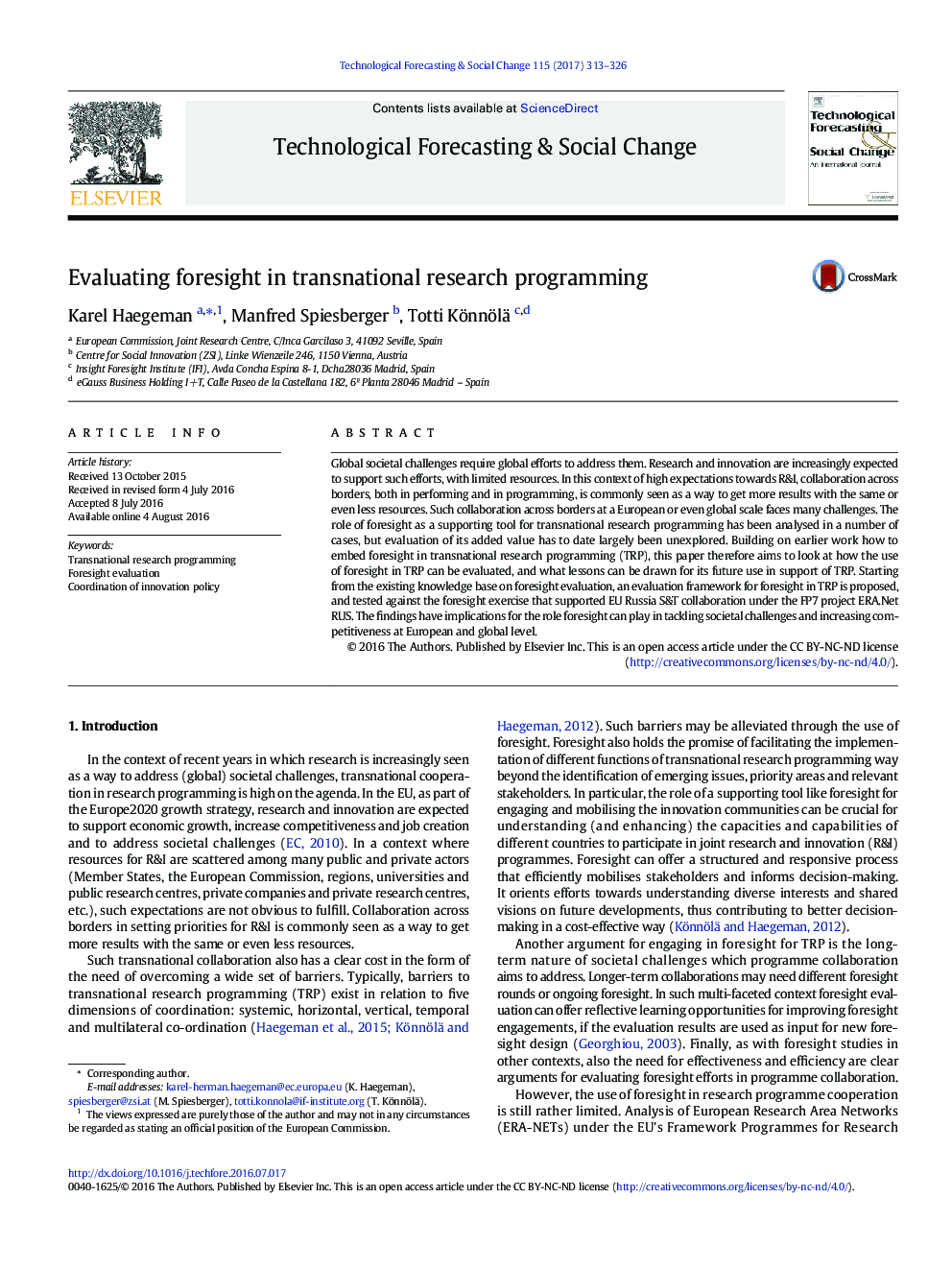| Article ID | Journal | Published Year | Pages | File Type |
|---|---|---|---|---|
| 5037136 | Technological Forecasting and Social Change | 2017 | 14 Pages |
â¢Global challenges require global cooperation also in transnational research programming (TRP).â¢Foresight is claimed to have multifaceted advantages in this context but evaluation is lacking.â¢We propose an evaluation framework and test it against the case of EU Russia S&T collaboration.â¢The various possible benefits show potential of foresight as support tool for global cooperation.â¢More experimentation needed on integrating different stakeholder perspectives in evaluation.
Global societal challenges require global efforts to address them. Research and innovation are increasingly expected to support such efforts, with limited resources. In this context of high expectations towards R&I, collaboration across borders, both in performing and in programming, is commonly seen as a way to get more results with the same or even less resources. Such collaboration across borders at a European or even global scale faces many challenges. The role of foresight as a supporting tool for transnational research programming has been analysed in a number of cases, but evaluation of its added value has to date largely been unexplored. Building on earlier work how to embed foresight in transnational research programming (TRP), this paper therefore aims to look at how the use of foresight in TRP can be evaluated, and what lessons can be drawn for its future use in support of TRP. Starting from the existing knowledge base on foresight evaluation, an evaluation framework for foresight in TRP is proposed, and tested against the foresight exercise that supported EU Russia S&T collaboration under the FP7 project ERA.Net RUS. The findings have implications for the role foresight can play in tackling societal challenges and increasing competitiveness at European and global level.
